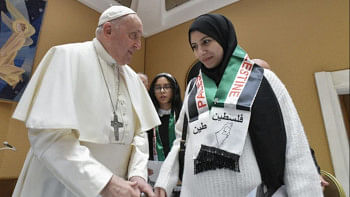Plight of poor patients in the hospitals
The situation of the increasing distrust between a doctor and a patient is increasing gradually. There was a time, not long ago, when doctors were treated and worshiped as no less than God. What happened to the reverence? How has that trust, faith and respect vanished into thin air?
With the ever increasing commercialisation and privatisation, doctors, some of them, have resorted to charge high fee, order numerous investigations needed or not and started referring patient for fee sharing. Why and how has this started? Are doctors responsible? The answer is both no and yes. The doctors are now afraid of the legal issues, patient demands, distrust, ever growing competition and investment of money and precious years of life in education.
Patient-friendly atmosphere will have to be created in all the hospitals of the country. Here is a problem that should be urgently taken care of. In government hospitals all over the country, poor patients, even serious ones with life-threatening conditions, usually go for treatment, but often they are paid little attention from all kind of health professionals including doctors, nurses and other people. They are shown quite often objectionable behaviour. Yet these people are there to give service to these patients and their salaries are paid from the government exchequer for that purpose.
Those who buy a BDT 10 outdoor ticket for treatment in public health centres are economically very humble in background, and usually they do not even register protest when they are treated with indignity. And these helpless people know for sure their complaint will not bring any fruit for them.
On the other hand, the drugs the government hospitals provide to patients at free of cost are inadequate. More often, for conducting investigation tests, they have to go through various hazards. The hospitals are generally supposed to be neat and clean with hygienic atmosphere. In this regard also, our public hospitals fall far below the expectation.
As the poor and helpless people are unable to get their rights, the conscious section of the society has to come to their help. However, unless higher authorities of the health ministry put pressure on the hospitals all across the country, chances are very little that situation at the grass-roots level will improve.
Doctor-patient relationship is a very important matter in the successful treatment of a disease. A doctor's good behaviour makes a patient receptive to the treatment he gives. The patient puts his trust on him and this is very vital in the whole procedure of treatment. It is seen in many government hospitals, some unscrupulous doctors practice seeing patient privately inside office hours in exchange of fees, though not all can afford that. From the day of patient admission to discharge one has to pay bribe in government hospitals otherwise they are subject to ill behaviour.
All these have ultimately led to loss of faith of patients towards doctors and other hospital staffs. May be in very few cases the patients or attenders are habitual offenders and repeat behaving in unaccepted way in the hospital premises also.
Doctors and other hospital staffs should always maintain and respect the dignity of the patients and their attenders and refrain from unscrupulous practices. They should treat patients as human being not as a case.
Thus corruption and inter-class rudeness in the doctor-patient dyad also reflect the broader nature of the social order. Medical education works in this context and humanities have a role to make aware of the nuances of the workings of society, to question prevalent practices and being ethically aware.
The writer is a gerontologist and a public health specialist.
E-mail: [email protected]

 For all latest news, follow The Daily Star's Google News channel.
For all latest news, follow The Daily Star's Google News channel. 



Comments